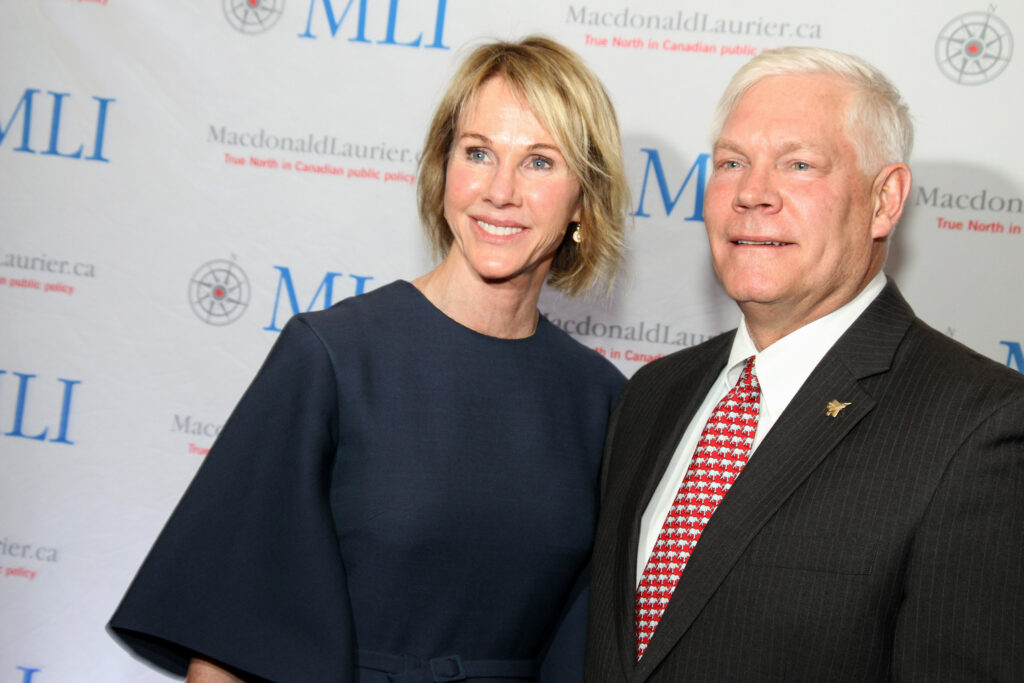The Macdonald-Laurier Institute picked a hot topic of conversation – the future of Canada-US relations – for its annual dinner held Tuesday at the Canadian War Museum.
Attendance was up by 50 per cent this year as 330 people from business, politics and policy, and public service were all ears to what new U.S. Ambassador Kelly Craft and others had to say about trade relations between our two countries.
American President Donald Trump’s shifting attitude toward the North American Free-Trade Agreement has created anxiety for Canadian firms that do business on both sides of the border.
OBJ360 (Sponsored)

The University of Ottawa Faculty of Health Sciences building was designed and constructed within 24 months, a point of pride for WSP in Canada (WSP), which was the prime designer

Xradar: Setting the standard for concrete imaging in Ottawa’s construction industry
Xradar recently celebrated its fourth year of operations in Ottawa and the surrounding region, but its concrete imaging expertise has been honed across Canada since 2010. As pioneers in concrete
Frank McKenna, former Canadian ambassador to the U.S. and one-time premier of New Brunswick, moderated a panel discussion that featured Craft, U.S. Congressman Pete Sessions, professor, author and Trump speech writer Frank Buckley, and Laura Dawson, director of the Canada Institute and MLI Munk Senior Fellow.


The audience heard before dinner from Sessions, a pro-NAFTA Republican from Texas and chair of the House Rules Committee.
He listed Ronald Reagan as his political inspiration and described Craft as a woman who “represents not only the best of America but the enthusiasm between two great nations as they not only strive to do business together but aim for the possibility that we can make life even better from where we started.”
He said Canada should not accept any kind of trade deal “that would put you in second place.”
“This is my message to you tonight: Canada should not yield to a bad deal,” said Sessions.
Sessions wrapped up his speech by expressing affection for Canada.
“I remember what happens in the Olympics when we play Canada,” he joked.
“I want you to know that I could not be prouder of, not only your country and of your teams, but of the things that you have done to help America, especially in our time of need,” he added, referring to Canada’s support after the 9/11 attacks.
Attendees included Supreme Court Justice Rosalie Silberman Abella, as well as Craft’s husband, Kentucky coal magnate Joe Craft. On hand to welcome everyone was MLI managing director Brian Lee Crowley, managing director of the Macdonald-Laurier Institute, an Ottawa-based national public policy think thank.
“For us, the Canada-U.S. trade issue is paramount,” Veso Sobot, director of corporate affairs for IPEX, told OBJ.social during the reception.
The Canadian manufacturer of thermoplastic piping systems has seven plants in the U.S. and 15 in Canada.
“It’s so important for us to be able to continue to be able to ship our product to the United States, and vice-versa.”


Martinrea, a global auto parts marker, keeps its head office in Toronto and runs its tech centre out of Michigan. The auto business is a very integrated North American market, said executive chairman Rob Wildeboer.
“Our interests, in the context of free trade, is let’s make NAFTA better. Let’s not throw out the baby with the bathwater, particularly in an industry such as automotive, where we’re all benefitting from it. (NAFTA) has been good for the auto industry, in Canada and the U.S. and in Mexico.”
Elizabeth Roscoe, senior vice-president and national practice leader with Hill+Knowlton Strategies Canada, was particularly interested in hearing that night the ambassador’s perspective on trade.
“I want to know where it’s going, what we can expect and what role she’s going to play,” said Roscoe. “How is she going to help advocate for the Canadian position?”





– caroline@obj.ca









